Abstract
Clarified muscle press juice from English sole (Parophrys vetulus) was fractionated by gel filtration into a protein and a protein-free fraction. Upon inoculation with spoilage bacteria, the protein fraction failed to show any signs of spoilage, but the protein-free fraction spoiled according to the usual organoleptic and chemical criteria. Despite its spoilage-resistant qualities, the protein fraction accelerated spoilage of the protein-free fraction when the two were combined. Protein breadkown due to bacterial action was greatest in the unfractionated juice and was least in the protein fraction. No significant proteolysis occurred until after spoilage became evident.
Full text
PDF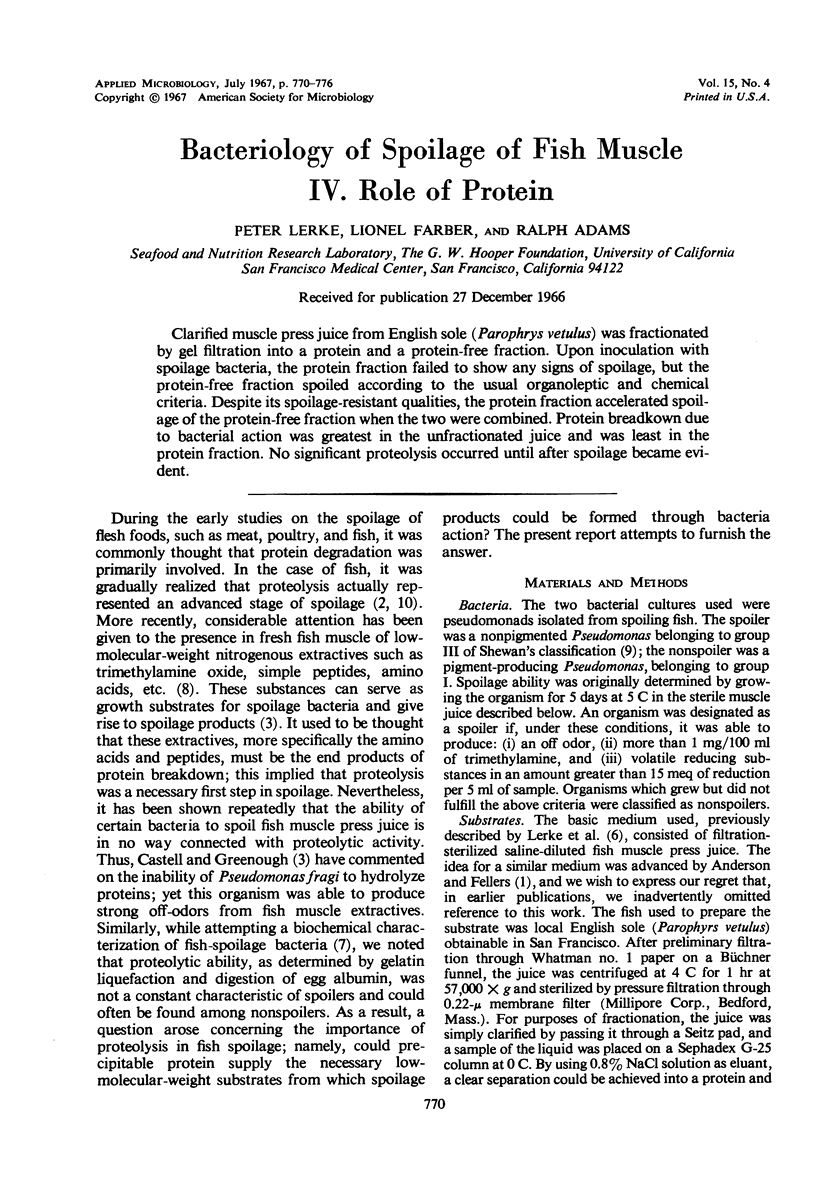
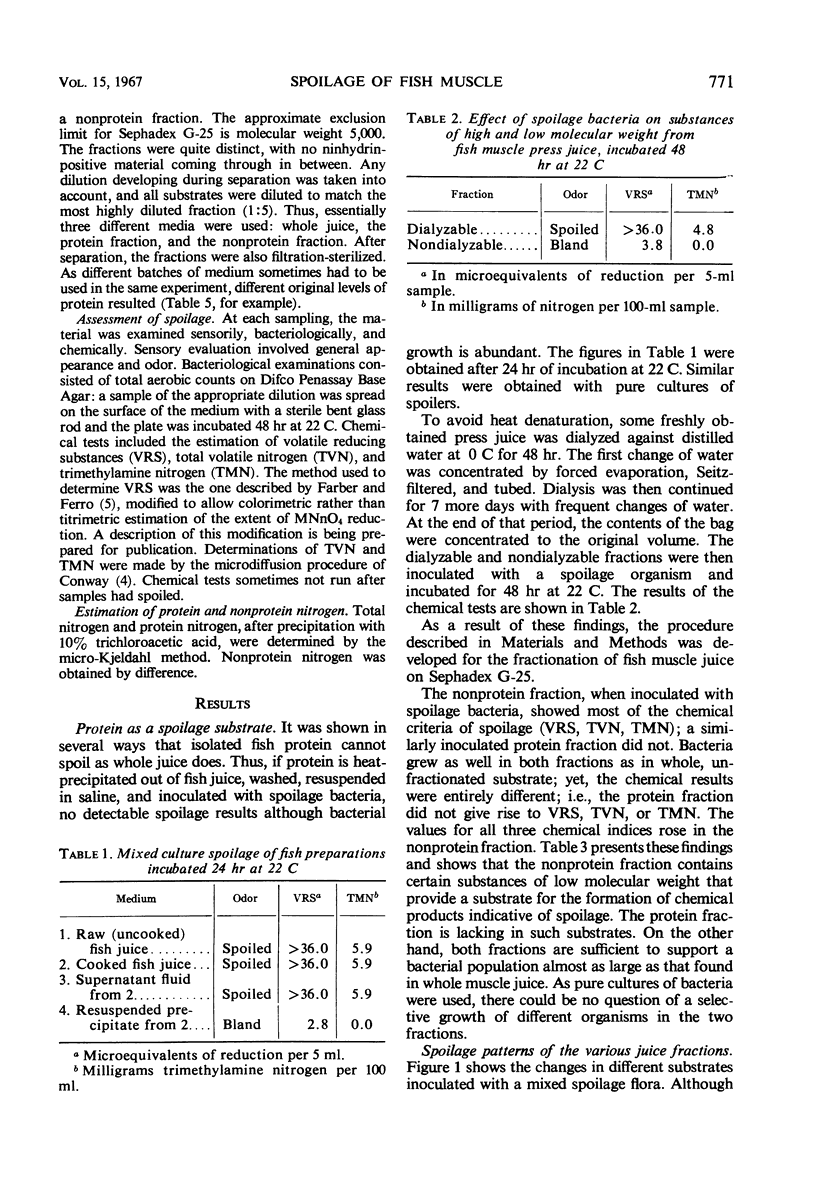
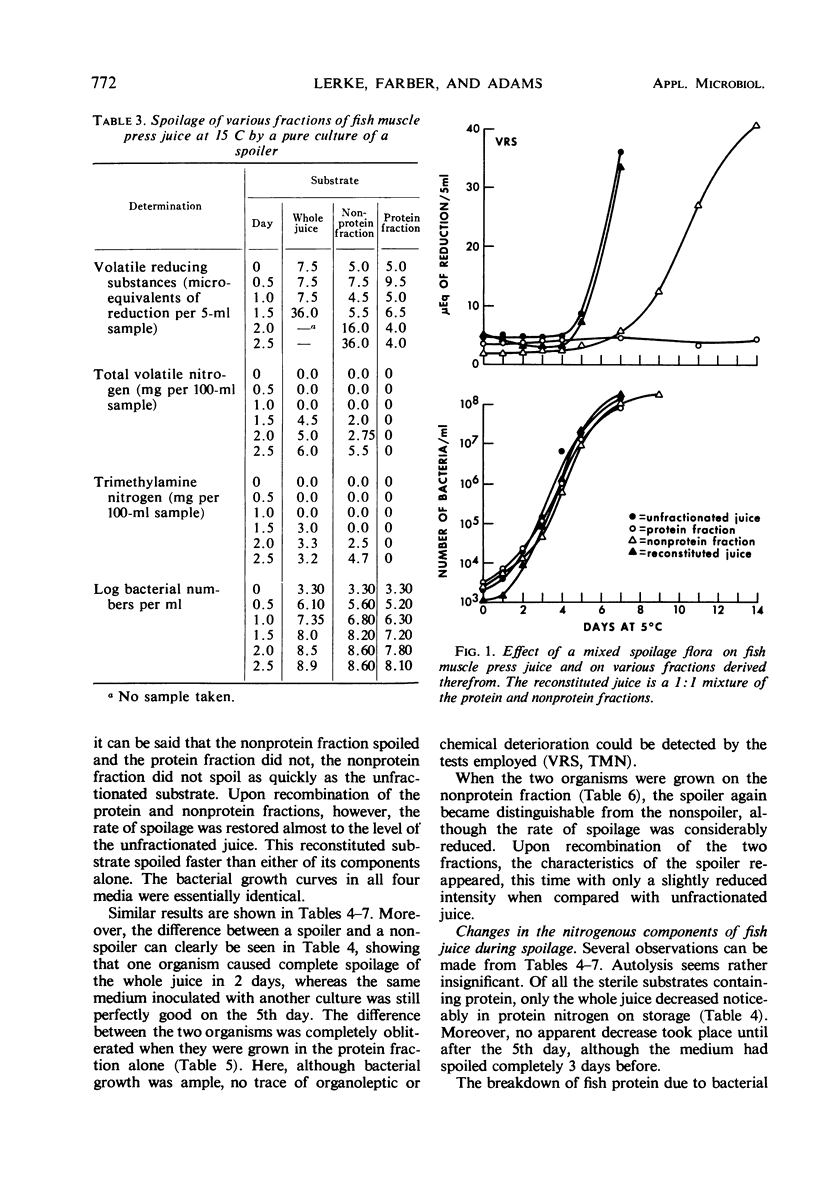
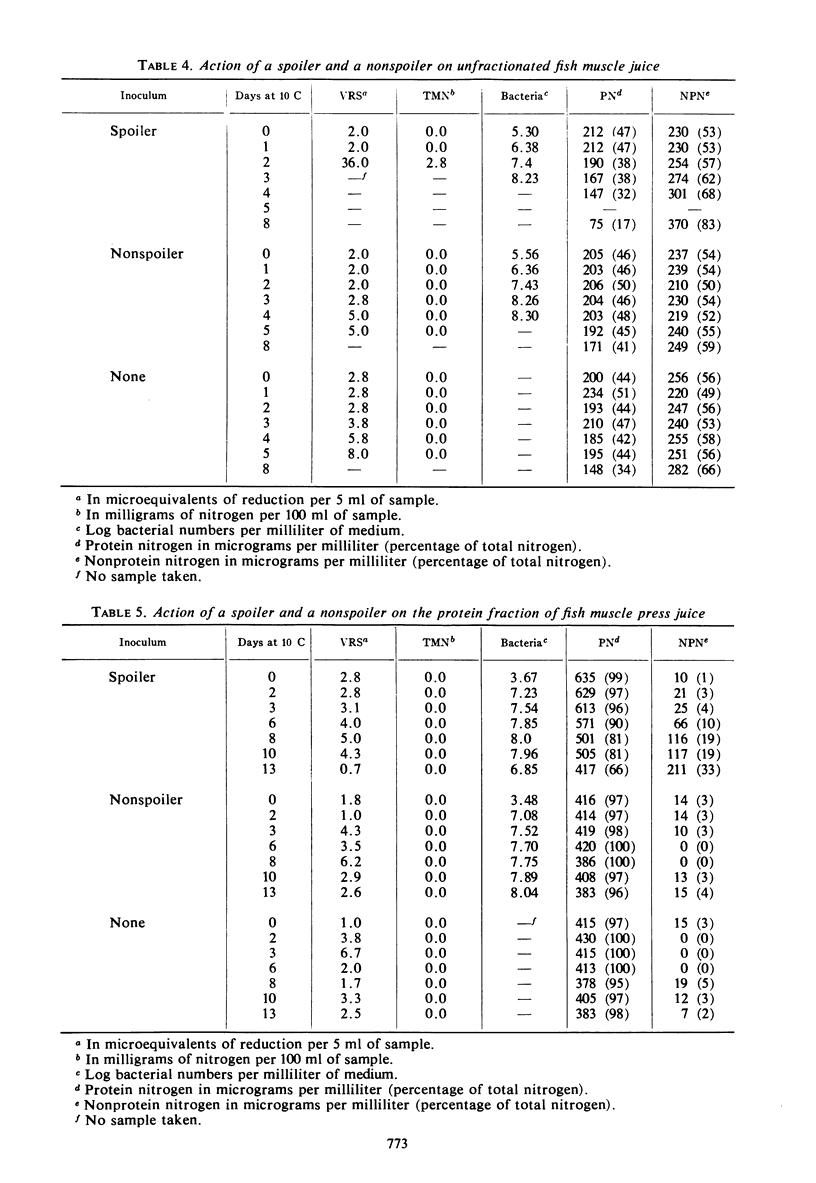
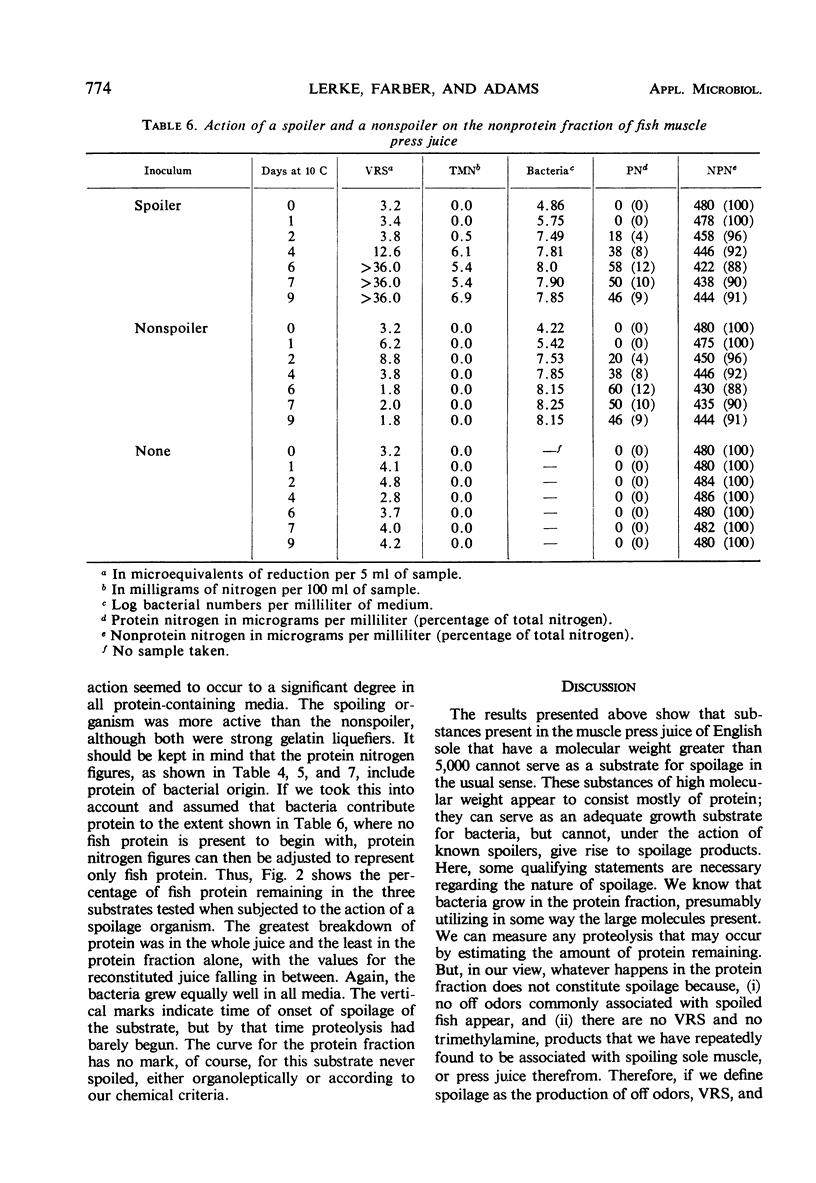
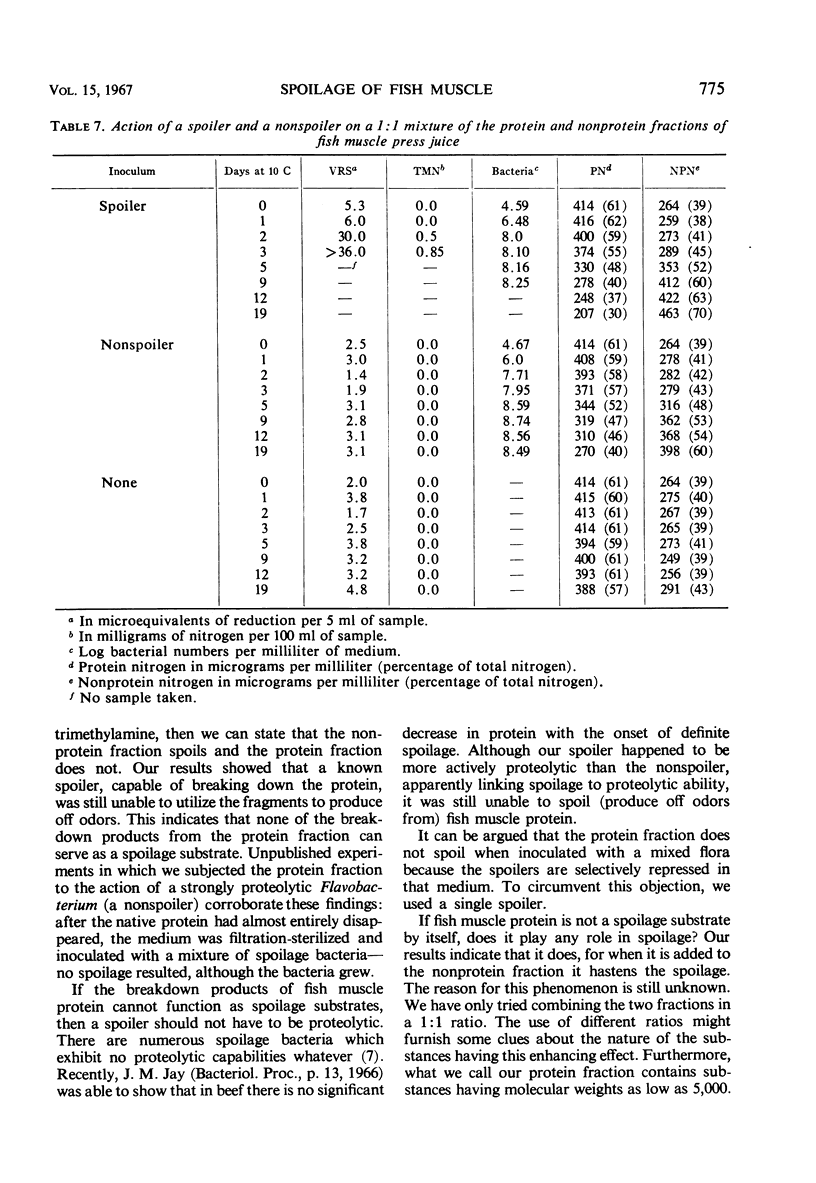
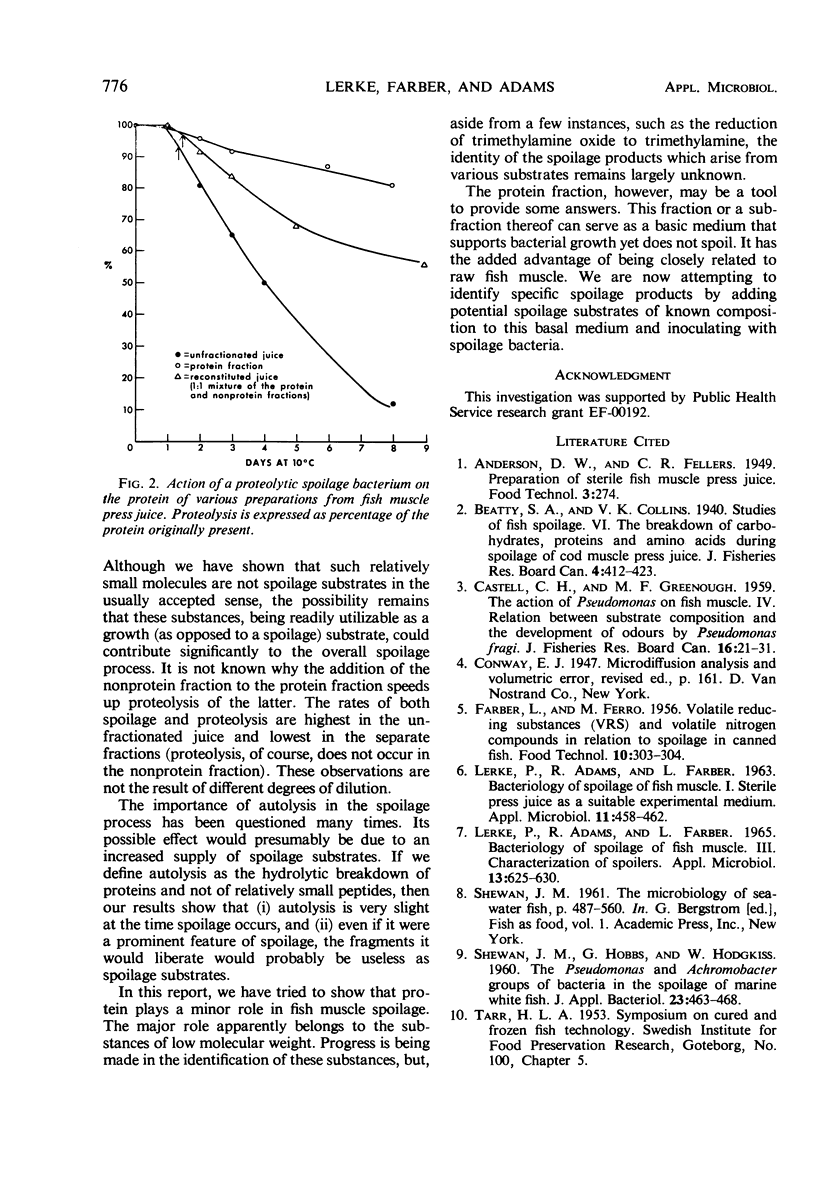
Selected References
These references are in PubMed. This may not be the complete list of references from this article.
- LERKE P., ADAMS R., FARBER L. BACTERIOLOGY OF SPOILAGE OF FISH MUSCLE. 3. CHARACTERIZATION OF SPOILERS. Appl Microbiol. 1965 Jul;13:625–630. doi: 10.1128/am.13.4.625-630.1965. [DOI] [PMC free article] [PubMed] [Google Scholar]
- LERKE P., ADAMS R., FARBER L. BACTERIOLOGY OF SPOILAGE OF FISH MUSCLE. I. STERILE PRESS JUICE AS A SUITABLE EXPERIMENTAL MEDIUM. Appl Microbiol. 1963 Sep;11:458–462. doi: 10.1128/am.11.5.458-462.1963. [DOI] [PMC free article] [PubMed] [Google Scholar]


